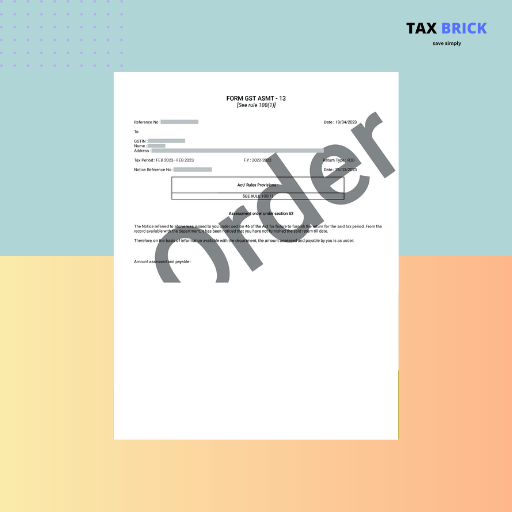Overview
Documents
FAQs
Q: What is a GST notice?
A: GST notice is a formal communication issued by the GST authorities to taxpayers regarding any discrepancies or non-compliance with the GST regulations.
Q: What are the common reasons for receiving a GST notice?
A: Some common reasons for receiving a GST notice include incorrect GST return filings, mismatch in GST returns, late filing or non-filing of GST returns, and claiming incorrect input tax credit.
Q: What is the due date to respond to a GST notice?
A: The due date to respond to a GST notice may vary depending on the specific circumstances of the case and the section under which the notice is issued. Generally, it ranges from 15 days to 30 days from the date of receipt of the notice.
Q: What documents are required to respond to a GST notice?
A: The documents required to respond to a GST notice may vary depending on the specific nature of the notice and the details mentioned in it. Some common documents that may be required include GST registration certificate, GST return filings, purchase and sales invoices, bank statements, challans for payment of GST, input tax credit (ITC) records, proof of payment of taxes, and any other documents related to the specific issue mentioned in the notice.
Q: What are the consequences of not responding to a GST notice?
A: If a GST notice is not responded to or resolved within the stipulated time, the taxpayer may face consequences such as penalties, fines, or cancellation of GST registration.
Q: Can a taxpayer appeal against a GST notice?
A: Yes, a taxpayer can appeal against a GST notice by filing an appeal with the GST authorities or the appellate tribunal. However, it is important to ensure that the appeal is filed within the specified time frame and provides accurate and complete information and supporting documentation.


